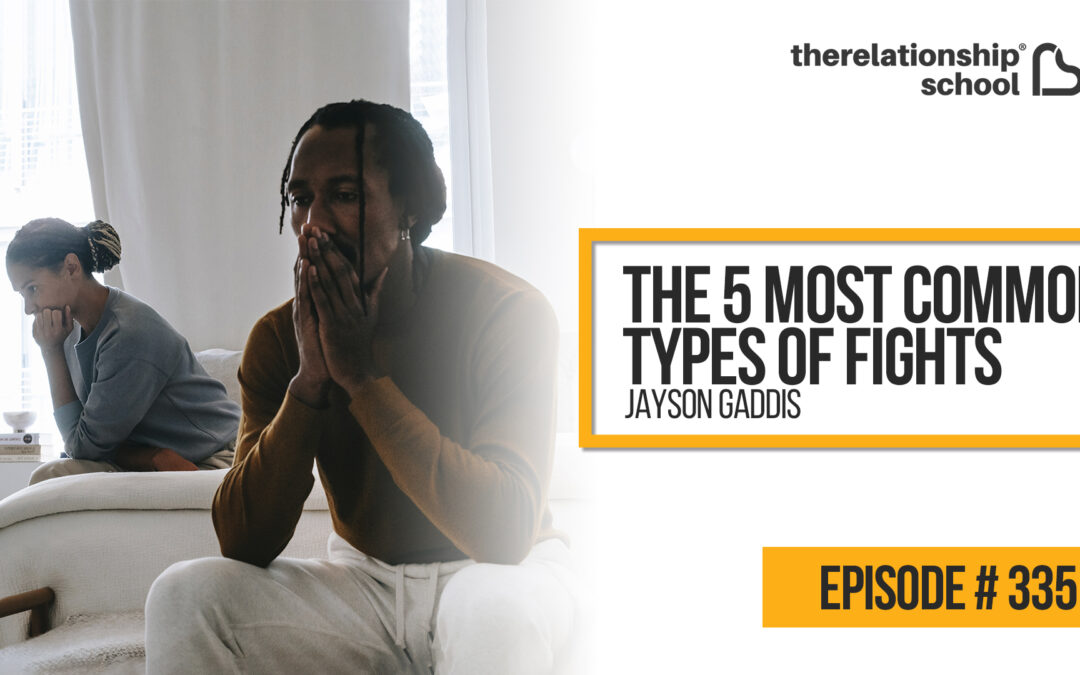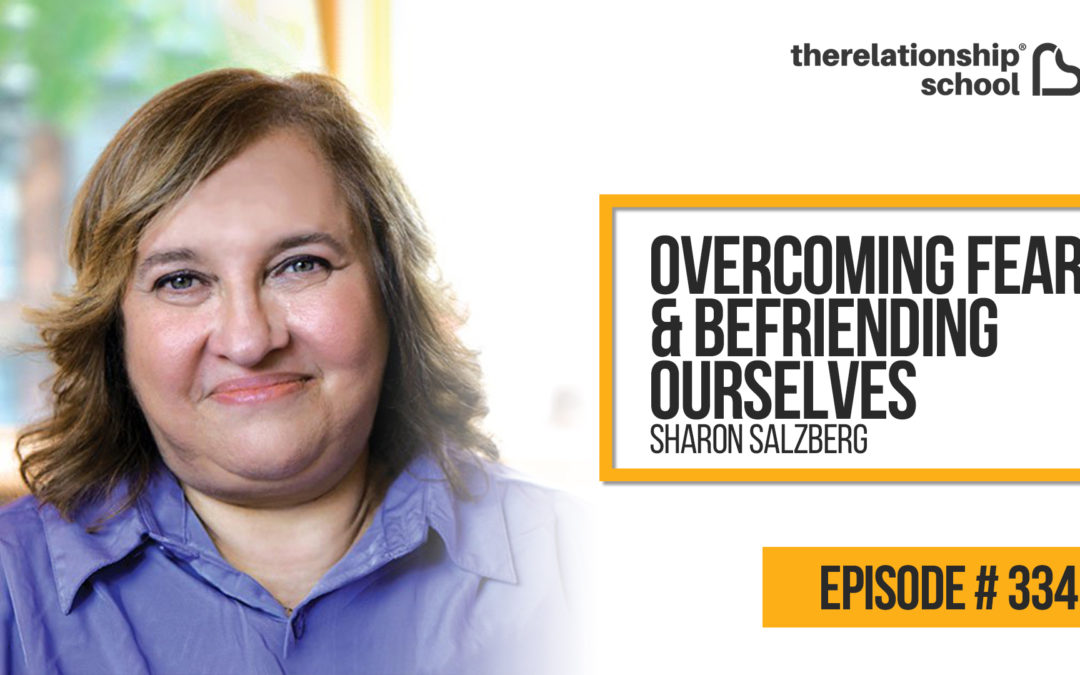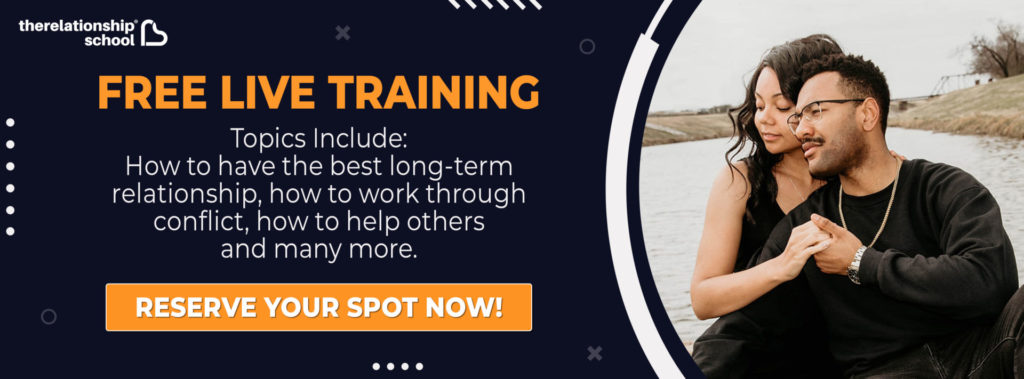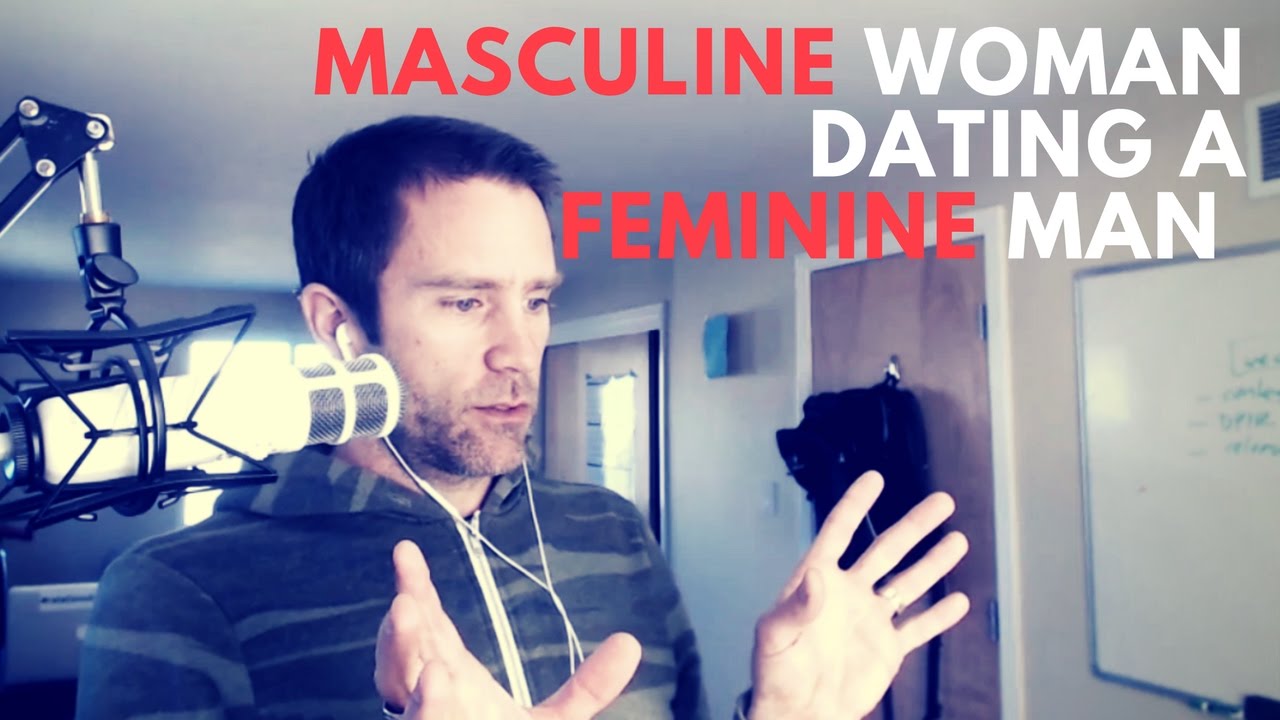The 5 Most Common Types of Fights in a Relationship – Jayson Gaddis – 335
Did you know there are only 5 types of fights you can have in your relationship?
The causes for them are more deeply rooted than you think… It’s true – if you want to be successful in your relationship you need to know how to identify them and work through them with your partner. Today’s episode is taken from chapter 13 of my book “Getting to Zero”. The entire book is about overcoming conflict in your relationship and this is just once aspect.
Let’s take a deeper look…
Fight #1: The Surface Level Fight
A service level argument can usually spring forth from minor things – being late, not doing the dishes, not paying bills or you and your partner can’t decide on what Netflix movie to watch. As a result of that one of you makes a remark and it leads into a small fight so you shut down and remove yourself from the situation and need to be alone.
What are you really fighting about? Maybe what really caused it was that picking the movie forced you both into the decision making process and it brought out some buried resentment. One small thing triggered a larger issue that is really resentment or your deep need to be understood in the relationship. Surface level arguments usually have a deeper reason and more layers to them.
Fight #2: Childhood Projections
We tend to project our historical stuff on to our partner. It’s common – when you get into an argument and the other person raises their voice – it activates you. Most of us feel activated when someone raises their voice at us. Where does that come from? Maybe your father was stern and often raised his voice. When someone screams at you, it subconsciously brings you back to your childhood. You can start to shut down or freeze and you can mirror this behavior because it’s how you responded to it as a child. It’s not just a partner – it can even be your boss or friend. This can be worked through, but it takes practice.
Fight #3: Security Challenges
Security challenges tend to happen when we question if our partner really has two feet in the relationship or not. This is where a lot of people get stuck. Fights can occur about the most minor things but it’s really due to you not being sure that the relationship is secure because you feel your partner isn’t truly committed. The work is to begin to establish security. The way to do that is to set up agreements that support security.
Fight #4 Value Differences
This revolves around how well you and your partners values can intersect. Value differences can create big problems and as well as resentment. Maybe you value saving money and your partner values spending it. Now you are both frequently fighting about finances but really it’s due to a difference in values. They are super important to us and friction can happen when they are at odds. Ultimately there needs to be common ground between you both in order to get back to zero.
Fight #5 Resentment
This is where things get tough for people… If you and your partner both resent each other and none of you are speaking or are able to learn how to overcome that conflict it will eventually erode the relationship and take trust away as well as connection. You won’t be able to get to zero at all because there is resentment at the core of everything.
Summary: Remember, working through conflict is a skill and the way to get better is through practice.






 Sharon Salzberg is a meditation pioneer and industry leader, a world-renowned teacher, and New York Times bestselling author. As one of the first to bring meditation and mindfulness into mainstream American culture over 45 years ago, her relatable, demystifying approach has
Sharon Salzberg is a meditation pioneer and industry leader, a world-renowned teacher, and New York Times bestselling author. As one of the first to bring meditation and mindfulness into mainstream American culture over 45 years ago, her relatable, demystifying approach has












